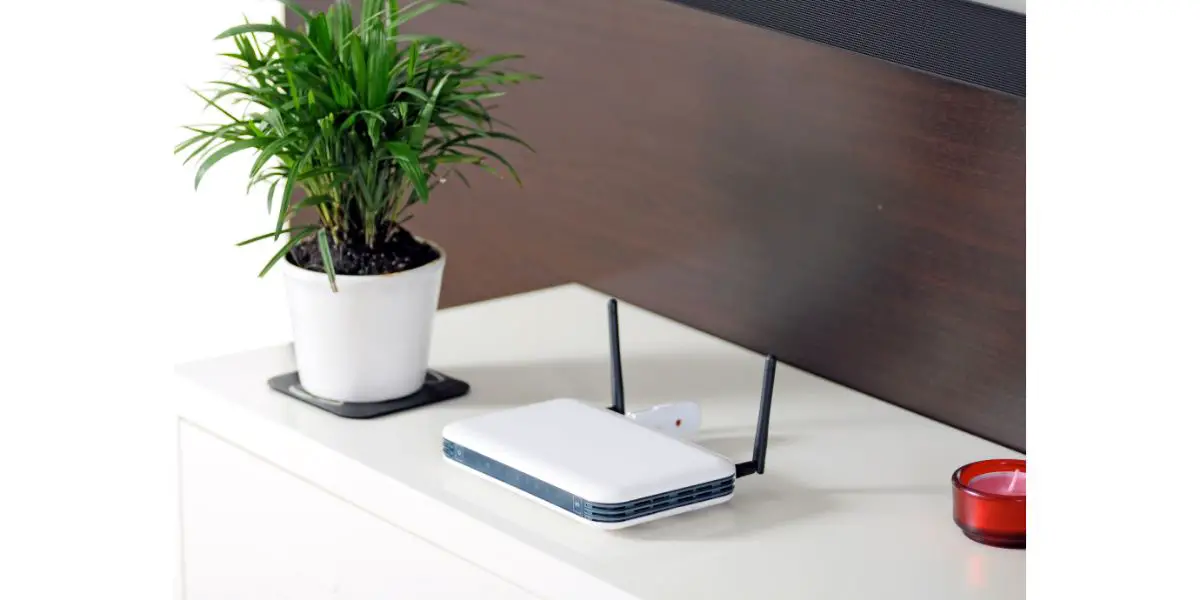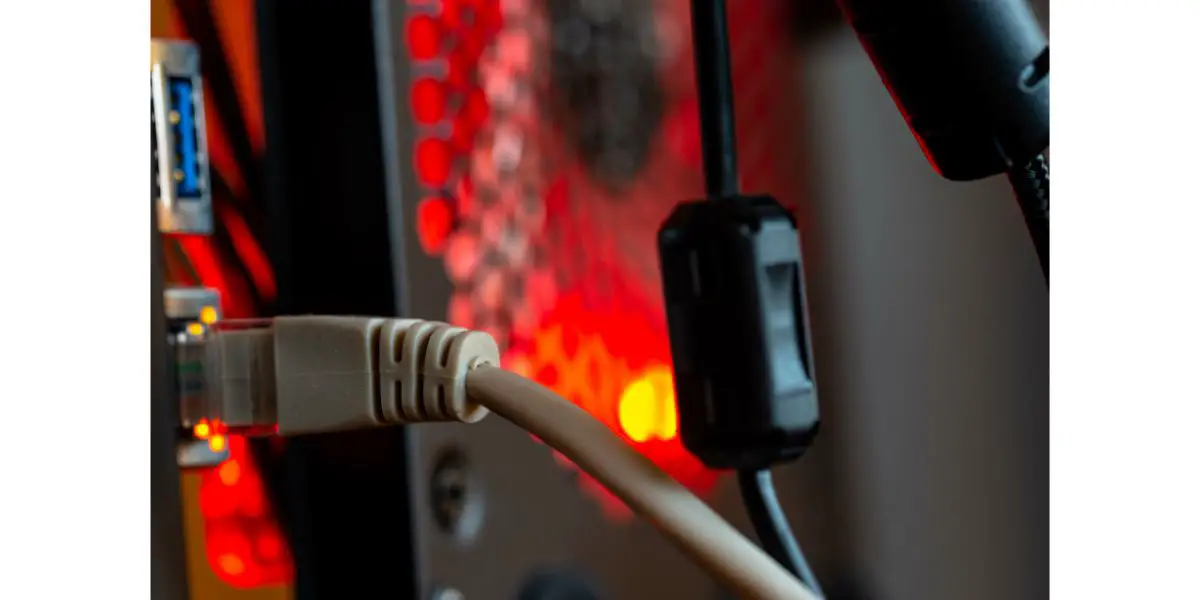Disclaimer: This post may contain affiliate links, meaning we get a small commission if you make a purchase through our links, at no cost to you. For more information, please visit our Disclaimer Page.
Routers look simple — they’re just electronic boxes with lights and cables — but they’re actually complex computers that may stop working from time to time. So what are the reasons for a router to stop working randomly? Let’s talk about them.
Table of Contents
1. Your Router’s RAM Isn’t Refreshed Properly
Every computer, including your router, needs RAM to process the tasks it needs to work on. Your router deals with a lot of processes that run simultaneously. If your router doesn’t refresh the RAM properly, it will start to bottleneck the operation until it disconnects from the internet.
Your router will not shut down; it will simply reconnect to the internet after the downtime. However, it will be a recurring issue as the RAM keeps failing. So if that’s what’s causing your router to stop working randomly, it will keep happening until you properly refresh it.
How To Fix
To give your router a hard reset, simply unplug it from the power outlet and leave it for at least 60 seconds before plugging it back in. Doing this will allow your router to refresh properly and operate without interruption or drops in connection.
This fix is top of the list because performing a hard reset is the easiest out of all the common causes for a router to stop working randomly. You don’t have to change or configure anything to deal with it, and it might even save you a lot of time from trying to fix your router.
2. Your Router Is Overheating
Like any other device, your router can also overheat. In fact, this is one of the most common causes for a router to stop working randomly (think about the last time you turned off your router). If your router is overheating, you’ll experience intermittent connection, or it may even stop working.
Another cause for your router to overheat is the lack of airflow. Most modern routers will work fine without turning them off regularly, but they still need proper airflow to work over an extended time. If you place your router in an enclosed location (to hide the cables) where airflow may be limited, you’ll experience random drops in your connection.
How To Fix
To fix this issue, make sure that your router is getting enough airflow and is not in an enclosed, hot space. If you did this and you’re still experiencing random drops in your connection, you might have to give it some downtime to cool it down.
One of the biggest misconceptions about routers is that regularly turning them off can be more detrimental. However, there’s no concrete evidence that a router is more susceptible to damage if you turn it off daily. In fact, most routers regularly refresh, even when connected to the internet.
3. Your Device Is Too Far From the Router
Sometimes, people think they’re losing their internet connection because of the router. However, it could also be because the device that you’re using is too far from the router. Whether you’re using an ethernet cable or wireless connection, your connection will be slow and intermittent if you’re too far from it.
How To Fix
Get closer to the router. If you’re using an ethernet cable, you need to be within 328 feet (100 meters) of the router, including patch cables. If you exceed this length, your connection will be too slow, and it will feel like your router stopped working randomly.
If you’re using a wireless connection, it would be best to get closer to the router or set up a WiFi Mesh using a device like the TP-Link Deco S4 Mesh System (available on Amazon.com). It will help you eliminate the dead spots in your house and allow you to connect to the internet using only one SSID or network name.
This issue is easy to rule out, especially if you’re using multiple devices or you have an extra ethernet cable that you can use for testing. You may also want to consider using a WiFi Analyzer to determine the dead spots in your house.
4. Your Router’s Firmware Needs an Update
Routers are computers that rely on complex firmware to work properly. If there’s a bug in your router’s firmware, which is not uncommon, your router will have issues processing all the tasks and will eventually stop working.
How To Fix
Updated firmware for your router is as vital as maintaining the drivers on your computer. So if you’re having issues with your router, especially if it stops working randomly, this is one of the things that you should look into.
Fortunately, manufacturers made it easier for users to update their routers. Some even provide a diagnostic feature within the router’s configuration page that allows the user to determine whether there’s a problem with the firmware.
Follow the following steps to update the firmware on your router:
- Go to your router manufacturer’s site. They’ll have a list of their routers, including the one you’re using.
- Check the downloads section. You should see an updated firmware version on this page if there’s one available for your device.
- Download the latest firmware from the manufacturer. Several firmware updates might be available depending on how long you’ve had your router. You’ll only need the latest version.
- Log in to your router’s configuration page. It is the page where you configure everything in your router, including the wireless settings.
- Unpack the firmware that you downloaded to update your router. It will automatically update your router and will fix any existing bugs.
- Restart your router. If outdated firmware causes the problem, you’ll notice an immediate improvement in your connection.
5. Your Device Needs an Update
Any computer heavily relies on software to function properly, and software becomes outdated over time. When this happens, your computer will manifest different issues, including problems with your internet connection.
Two things might happen if you have an obsolete driver in your computer: it can cause your connection to drop or send too much traffic to the router and take it down.
How To Fix
If your router randomly stops working, check your computer’s drivers and ensure that all of them, especially the ones related to your network connection, are updated.
Here’s how you can manually update your network drivers:
- Go to the Windows Search Box.
- Type in Device Manager, then Enter.
- Click Network Adapters to open the list of drivers related to your network connection.
- Right-click each item and click Update Driver.
Aside from being able to rule out the possibility that your router randomly stops working because of your computer’s drivers, updating your drivers also ensures that your computer works properly. Sometimes, it can even help you get a better connection or improve your computer’s performance. There’s nothing to lose when you update your computer’s drivers.
6. Your Router Is Overloaded
Routers can handle multiple connections simultaneously, but how it handles these connections depends on the technology that the manufacturer uses for the router. Some routers might experience issues when they process dozens of connections, while others can easily handle more than 100 connections.
If you have a lot of devices in your network and they tend to connect at the same time, there’s a possibility that your router will stop working because it can’t handle the load. Remember, routers are computers that use RAM to process tasks. When there are more tasks than the RAM can handle, it will bottleneck the operation and stop working.
How To Fix
Fixing this issue might be the most frustrating because an average household has plenty of devices that need to connect to the internet to work. The only way to deal with it without paying for an additional device is to reduce the number of simultaneous connections you have in your network.
You can also ask your ISP to upgrade your router, but if they charge you for it, you might as well consider getting a better, more capable router. You can still use your old router as an access point, and your newer router might even help you get better internet speed.
7. There Is a Bad Connection in Your Network
If you have a router, there’s a good chance that at least one device in your network is using an ethernet cable (i.e., your laptop, desktop computer, gaming console, or smart TV). If you’re using a “bad” (low quality or poor setup) ethernet cable, that device will keep sending too much traffic to the router, which can cause it to stop working randomly.
How To Fix
If you have a wired connection in your network and your router randomly stops working, it would be best to check your ethernet cable or replace it with another one to see if it fixes the problem.
If it still stops working randomly, try connecting it to a different port in your modem (i.e., if you were using LAN 1, try using LAN 2 for your connection).
Consider upgrading your cables if you have a poorly set up ethernet cable (too long or low quality). Testing your connection with another cable is the first step as it will allow you to determine whether it’s really the one causing your connection drops.
8. Your Area Is Congested
Every router has to connect to a network to work properly, and it’s normal for routers to get “kicked out” of the network. However, modern routers, especially high-end ones, can quickly reconnect without issues, and you won’t even notice the downtime.
If there are too many people in the area, there’s a possibility that your router gets “kicked out” of the network and is unable to reconnect, which causes it to stop working randomly. The worst part is that it won’t be able to reconnect to the internet until you perform a hard reset.
How To Fix
This issue only happens if you’re using an older or cheap router. Unfortunately, if this is what’s causing your router to stop working randomly, the only way for you to fix this issue is to call your ISP and request a router upgrade or upgrade it yourself and use your older router as an access point.
9. Improper Router Configuration
Most routers are set to have dynamic IP addresses. Unless you’ve contacted your ISP and requested a static IP address, it will change at a predetermined interval (hours, days, or after every reset). Some routers even refresh the IP address once every 4 hours!
There are some cases where a user configures the IP address to have a static IP address and sets the one they want to use. When this happens, the router will work properly for a bit, then stop working as soon as the ISP refreshes the IP address for the router.
It happens because if a user configures the router to have a static IP address, the router will hold on to that IP address even if it should have a different one. When this happens, your internet connection will stop working, and it will seem like your router has stopped working randomly.
How To Fix
If you suspect that this is happening to your router, it would be best to log in to your router’s configuration page and set the router to work with a dynamic IP address. It will allow your router to keep working even after your ISP switches you to another IP address.
If you want a static IP address, you can call your ISP and request one. You’ll have to configure it inside the router’s configuration page, which will also help you avoid getting disconnected whenever your IP address refreshes.
10. Inability To Handle IP Switches
If your router is set to function with dynamic IP addresses, it’s still possible that these switches are what’s causing your router to stop working randomly. If you’re using an outdated router, it might not be able to instantly switch to a new IP address, which causes downtime.
If this is what’s causing the problem, then there will be downtime every time your ISP assigns a different IP address to your router. Some people would even need to restart their router just to reconnect to the internet.
How To Fix
Unfortunately, the best way to deal with this issue is to get a replacement for your router. Even with updated firmware, your router may not have the necessary hardware to keep up with IP addresses. Upgrading your router will not only help you prevent connection drops but may even help you get better internet speed.
Conclusion
If you’re having issues with your router because it stops working randomly, try to see if the problem is really with your router and not an external factor. There are a lot of things that can affect the performance of your router, and many of them will only require recalibration or a slight reconfiguration.



